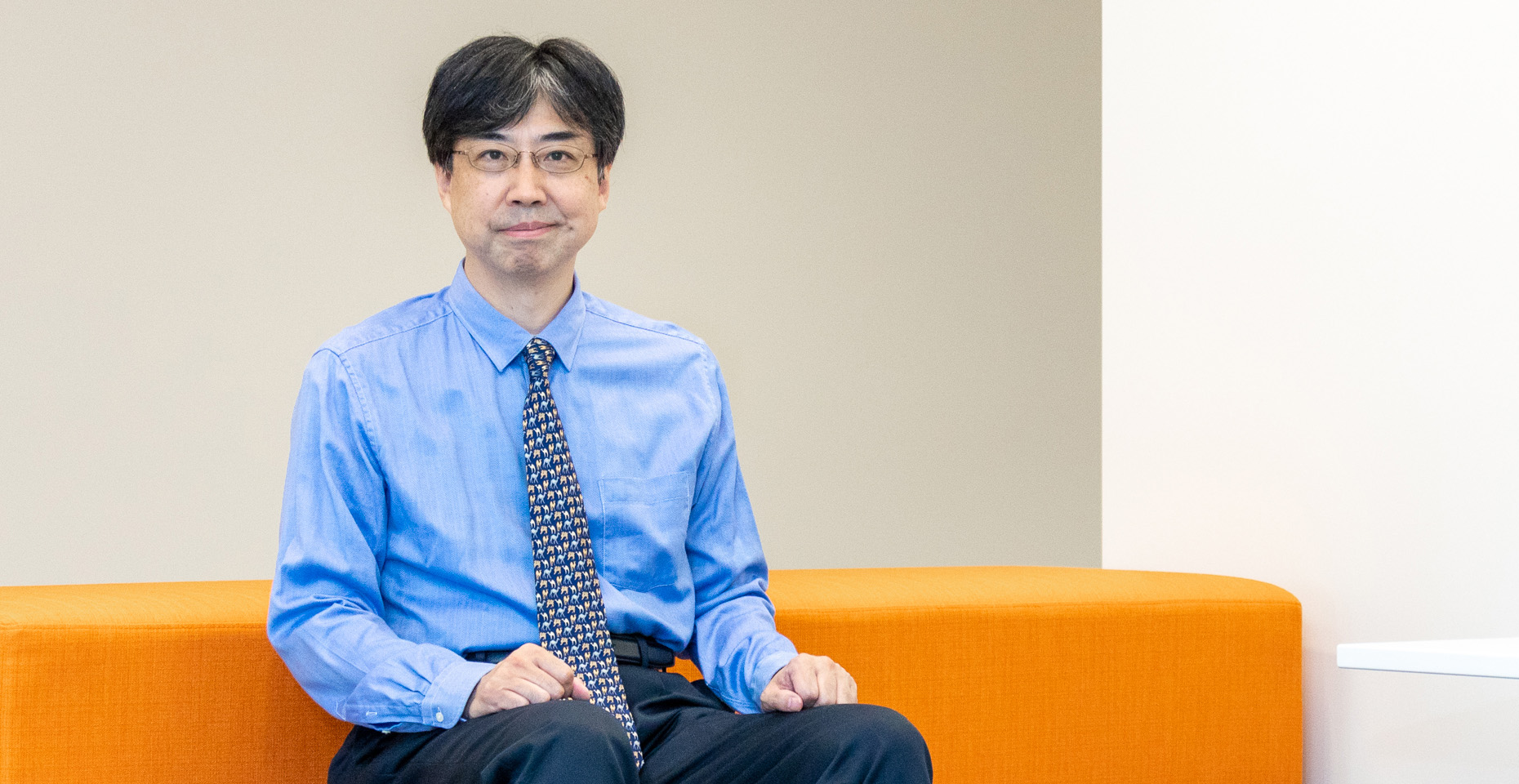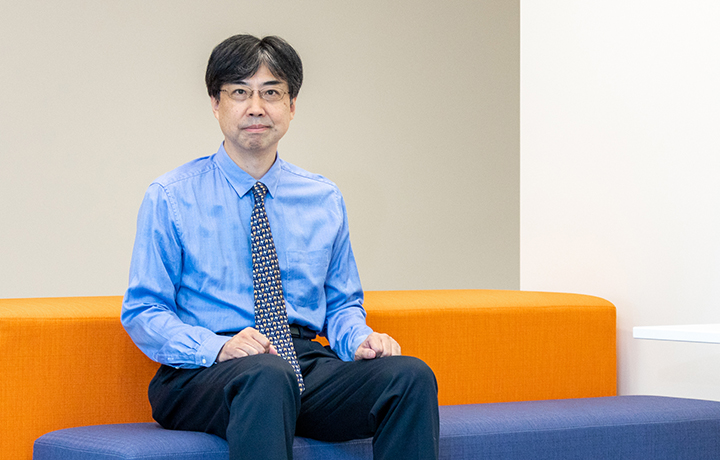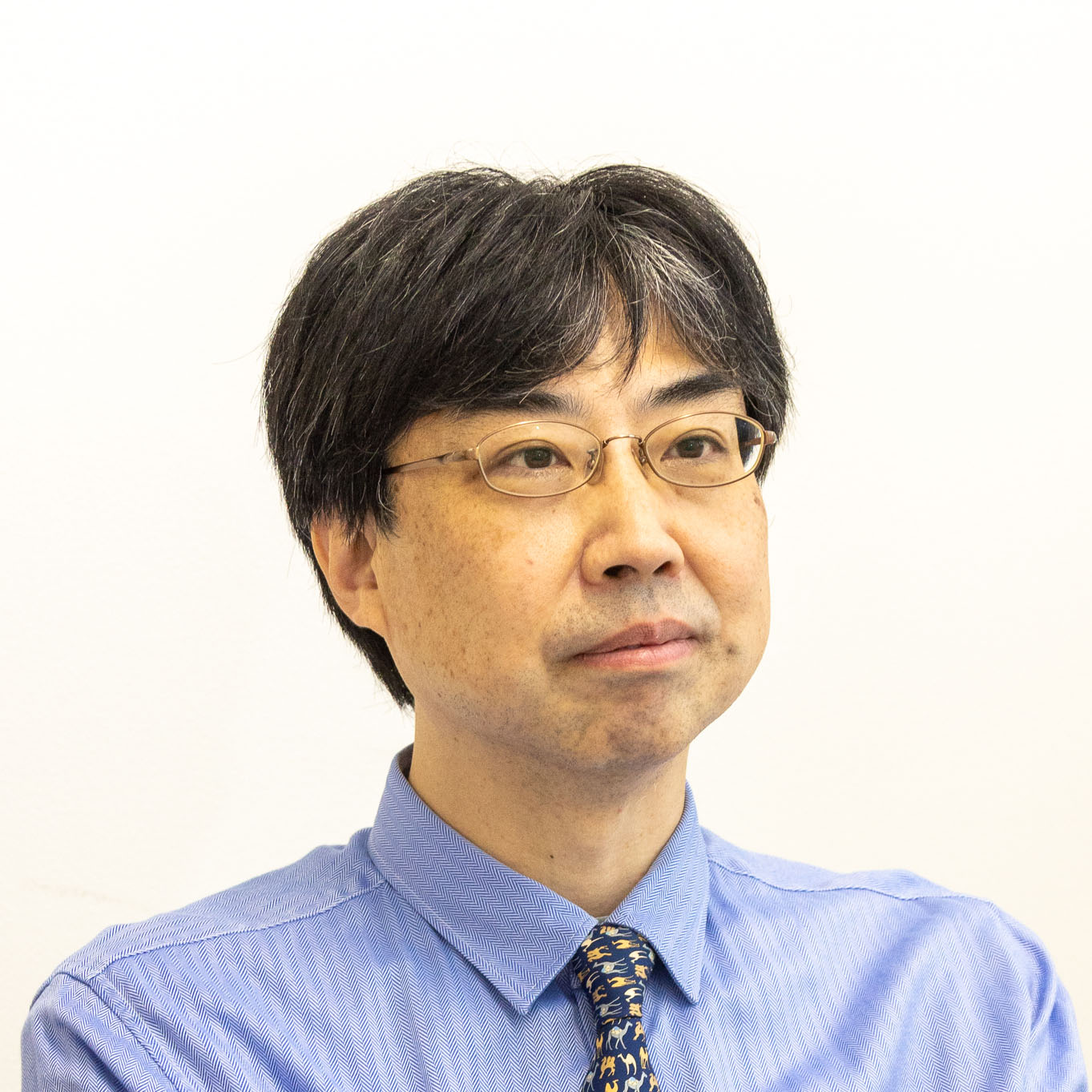In April 2023, the Children and Families Agency was established with the goal of promoting healthy development. Despite this aspiration, however, the prevalence of mental health issues in children is increasing and requires early intervention. In response to this growing concern, a team led by Eiji Shimizu, the director of the Research Center for Child Mental Development at Chiba University, has developed a cognitive behavioral therapy program for children that has proven effective. We interviewed Dr. Shimizu, a specialist in cognitive-behavioral therapy who has authored several books and made numerous media appearances, to learn more about the challenges that today’s children are facing and the potential benefits of cognitive behavioral therapy.
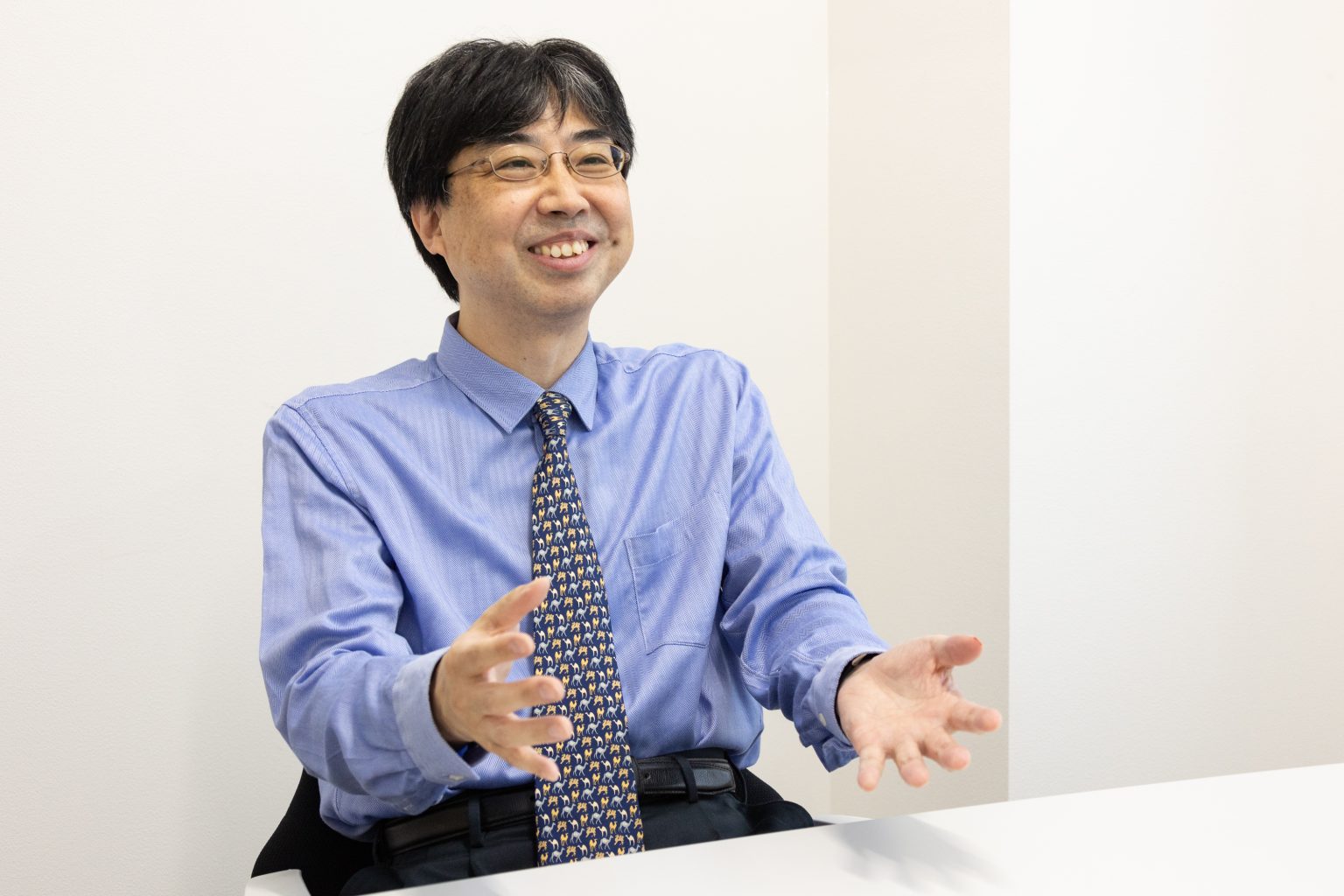
“Anxiety” behind the School Absenteeism and School Refusal
Please tell us about the problems children are facing today.
When people hear the phrase “news about elementary and junior high school students,” many may think of “School Absenteeism and School Refusal.” In 2020, the number of elementary and junior high school students who were considered school absenteeism and school refusal was about 196,000, with almost half of these cases (46.9%) being attributed to a single cause, “anxiety.”
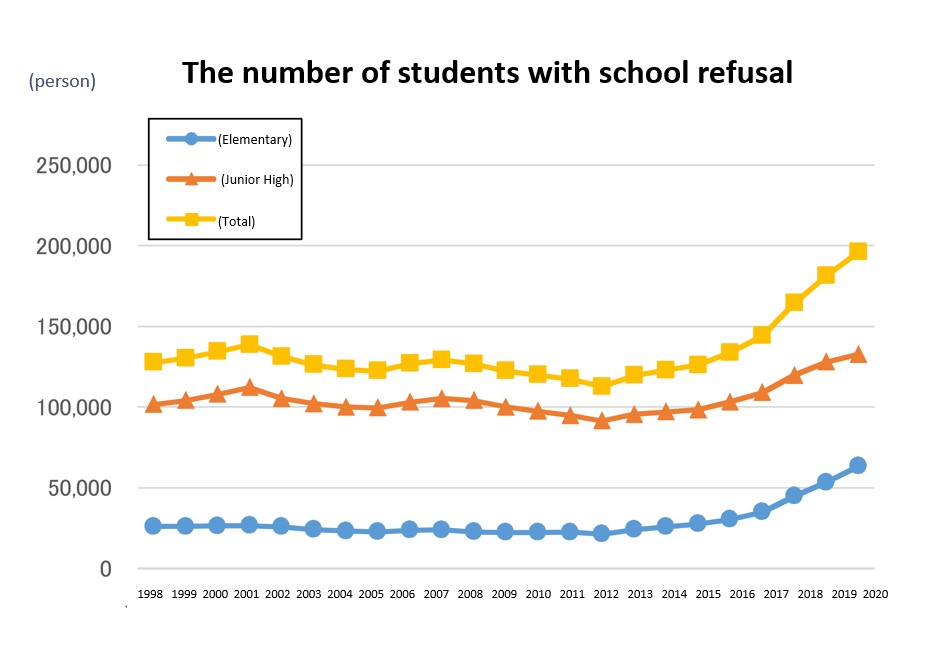
What kind of anxiety do children experience?
Anxiety, although often viewed negatively, plays a crucial role in the survival of living beings. For example, if a grass-eating animal does not feel anxiety at all, it will be eaten by a predator. A person with a high sensitivity to anxiety can be considered to have a high ability to survive. While an appropriate level of anxiety is necessary, a feeling of anxiety that is too strong could make life difficult. Therefore, balance is essential.
Is there anything parents and teachers should understand about anxiety and school refusal?
One reason why school refusal is often considered problematic is that adults think “Children should go to school.” Adults expect children to “live happily ever after.” They subconsciously assume that school is supposed to be a fun and enjoyable experience, leading them to question why a child might not want to attend. However, just as adults experience stress at work, children can also experience a variety of stresses that may make attending school challenging.
Fortunately, with the availability of various online learning materials, children have options for studying at home. If your children are mentally exhausted, let’s give them a break. Personally, I feel the word “futoko (not attending school)” may not accurately capture the complex reasons why children may be struggling to attend school. I think that “taking a school break” or “taking a rest” might be better alternatives.
What is the best way to respond to a child who is feeling strong anxiety?
Anxiety is said to be a risk factor for other mental disorders, such as depression. Many adults who seek treatment for mental disorders have told us that they have actually suffered from the difficulty of living since adolescence. Therefore, early intervention and appropriate response are crucial.
“Journey of the Brave” program to cope with anxiety
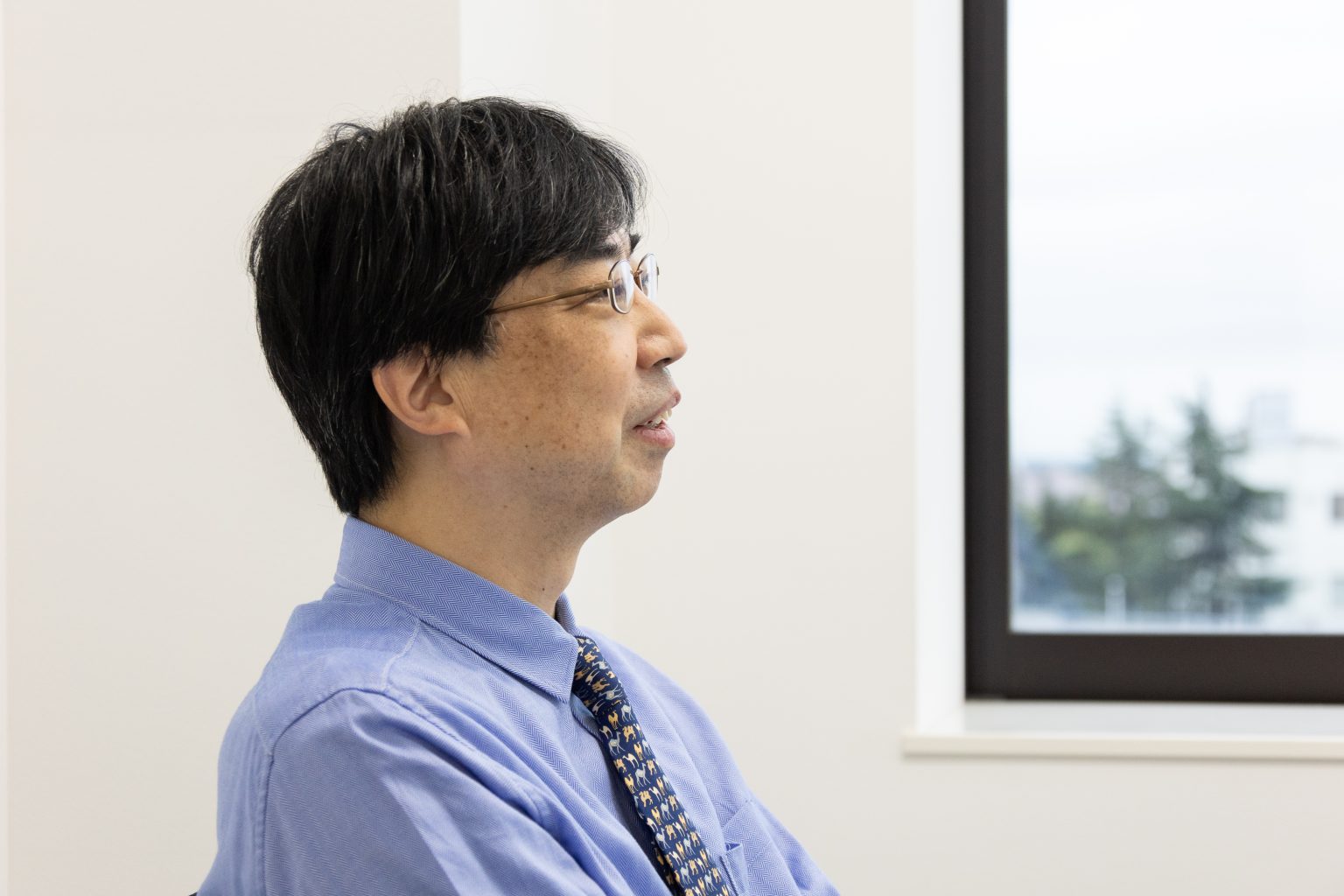
Please tell us “Journey of the Brave” program your research group has developed to help children acquire appropriate anxiety coping skills.
It is difficult for people to recognize their thinking habits, which can influence whether they feel positively or negatively in a given situation. If someone tends to be biased toward negative thoughts, it can lead to negative actions and create a negative spiral that can worsen anxiety over time.
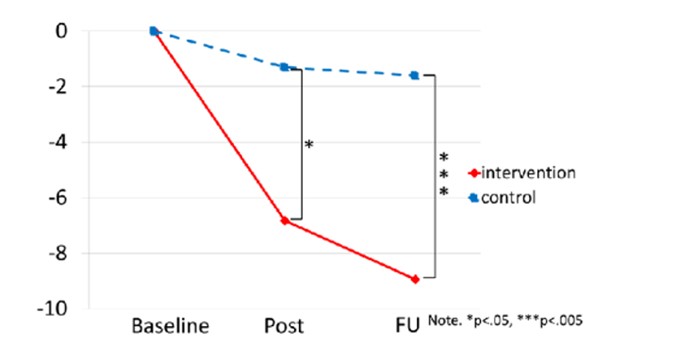
A total of 41 children in 5th-grade students were assigned to the intervention group, while 31 students were to the control group. The intervention group received the “The Journey of the Brave” program, and the anxiety levels of the children in both groups were measured using a questionnaire called “the Spence Children’s Anxiety Scale (SCAS)” before, immediately after, and three months after the program was implemented (Urao et al., 2018). The results showed that the anxiety levels of the intervention group (red line) were significantly lower than those of the control group (blue dotted line).
I heard the Journey of the Brave program is open to all students in the grade, not just children at risk.
We strongly encourage all students in the grade to take the program. One reason is to provide students who don’t typically feel anxiety with an opportunity to have empathy toward their peers who are sensitive to anxiety. The other reason is that this skill can be used even after becoming an adult. Mastering coping skills for anxiety can benefit them throughout their lifetime, as they will be better equipped to manage stress and adapt to changes in their environment, even when faced with strong anxiety.
Feedback from students who participated in the “Journey of the Brave” Program
I learned for the first time that I can reduce my anxieties.
I could solve my problems and worries.
I became able to think about other people’s feelings better.
I thought I should remember the “Journey of the Brave,” whenever I face troubles or worries.
It was fun. I wanted to use what I was taught in my daily life.
The original program consisted of 10 sessions, each lasting 40 minutes. We, however, have found that the shortened version of 14 sessions, each lasting 20 minutes, also has a positive effect on reducing anxiety. In the fiscal year 2022, approximately 3,700 students from about 30 schools across the country are participating in the program. We hope that the “Journey of the Brave” will be implemented in more schools in the future, leading to an increase in children who can manage their anxiety through self-management.
Press Release: Short CBT Program is Also Effective at Reducing Anxiety among School Children
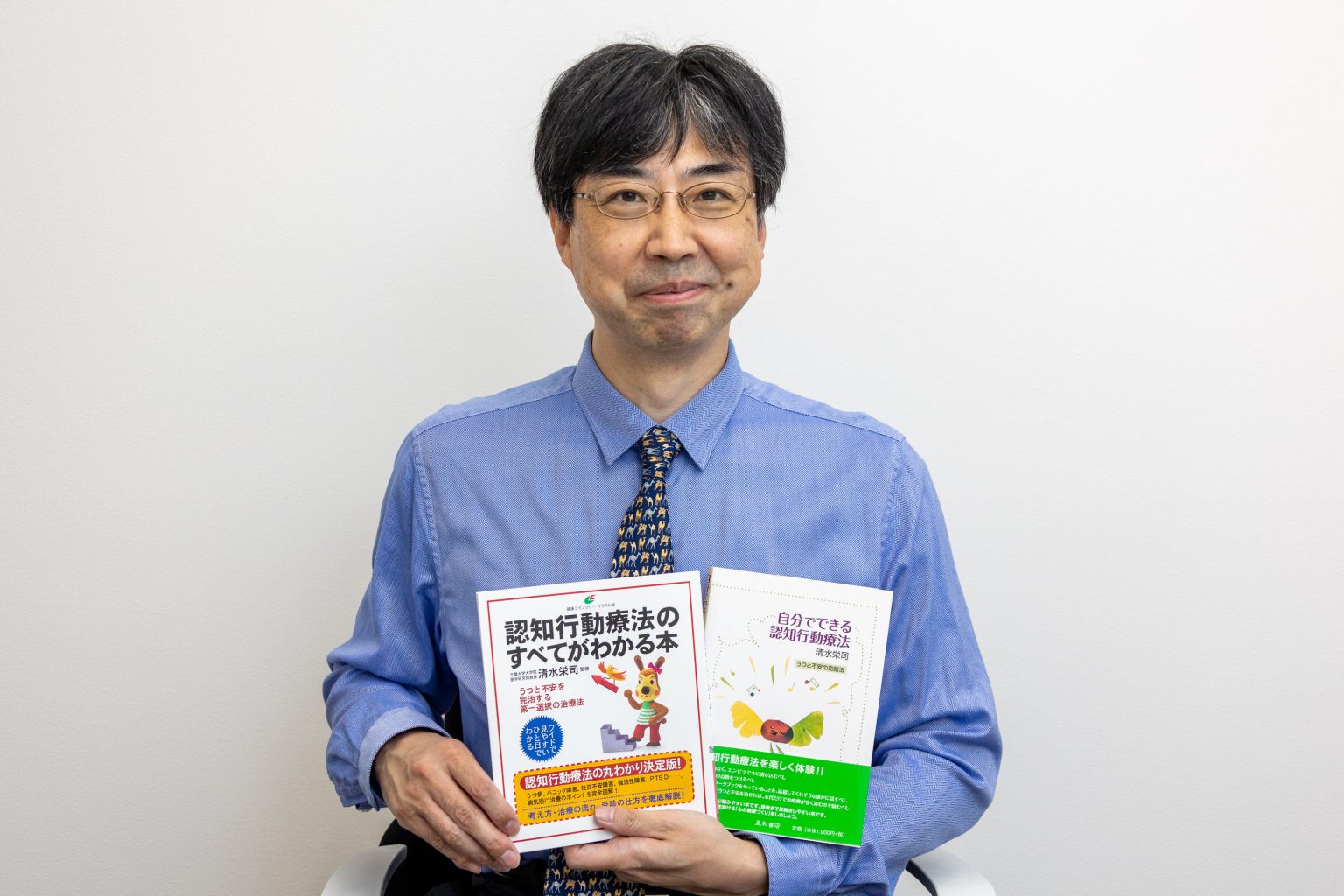
The Power of Cognitive Behavioral Therapy: An Effective Alternative to Medication
Tell me more about the Cognitive Behavioral Therapy used in the “Journey of the Brave”
Cognitive Behavioral Therapy (CBT) is a psychological therapy that aims to balance the vicious cycle of negative thoughts and behaviors that are causing emotional problems. It is based on a research report showing that it is as effective as or more effective than the drug treatments, such as an antidepressant, for mental disorders such as anxiety and depression. One significant advantage of CBT is that it does not have the side effects associated with medication.
One major challenge is a shortage of specialists. As Certified Psychologists, we are trained to carefully listen and empathize with our patients, with some saying that “90% of a Certified Psychologist’s job is careful listening, acceptance, and empathy.” However, given that each patient may require an hour of our time, we can only see a maximum of eight patients per day. Furthermore, active intervention in patients’ thoughts and behaviors while listening is also expected. To address this challenge, we believe that highly specialized professionals with doctoral degrees are best suitable for providing CBT. We, therefore, offer a Cognitive Behavioral Science Course within the doctoral program at the United Graduate School of Child Development* with the aim of training professionals who can address phycological problems from a scientific perspective.
*A 3-year doctoral program offered jointly by five national universities: Osaka University, Kanazawa University, Hamamatsu University School of Medicine, Chiba University, and Fukui University.
It takes at least two years to become proficient in full-fledged CBT. Therefore, we also offer “Mental Support Healthcare Professional Development Courses” and “CBT Learning” for those who have frequent contact with children, such as pediatricians, public health nurses, teachers, school nurses, school counselors, and others. Through these courses, they can learn the simple form of CBT. This will increase the number of professionals who can be consulted with ease at the stage of mental discomfort, such as “feeling mentally tired and unwell.” We can expect early detection and early resolution through collaboration with specialists.
At the same time, we are promoting online counseling and self-care through digital therapeutics using apps to enable more people to access CBT.
At schools, each student has been provided with a digital device under the GIGA School Program. If students install the CBT app in advance, they can have direct access to self-care. We will continue advancing our research and collaboration to ensure all students have access to appropriate self-care and support.
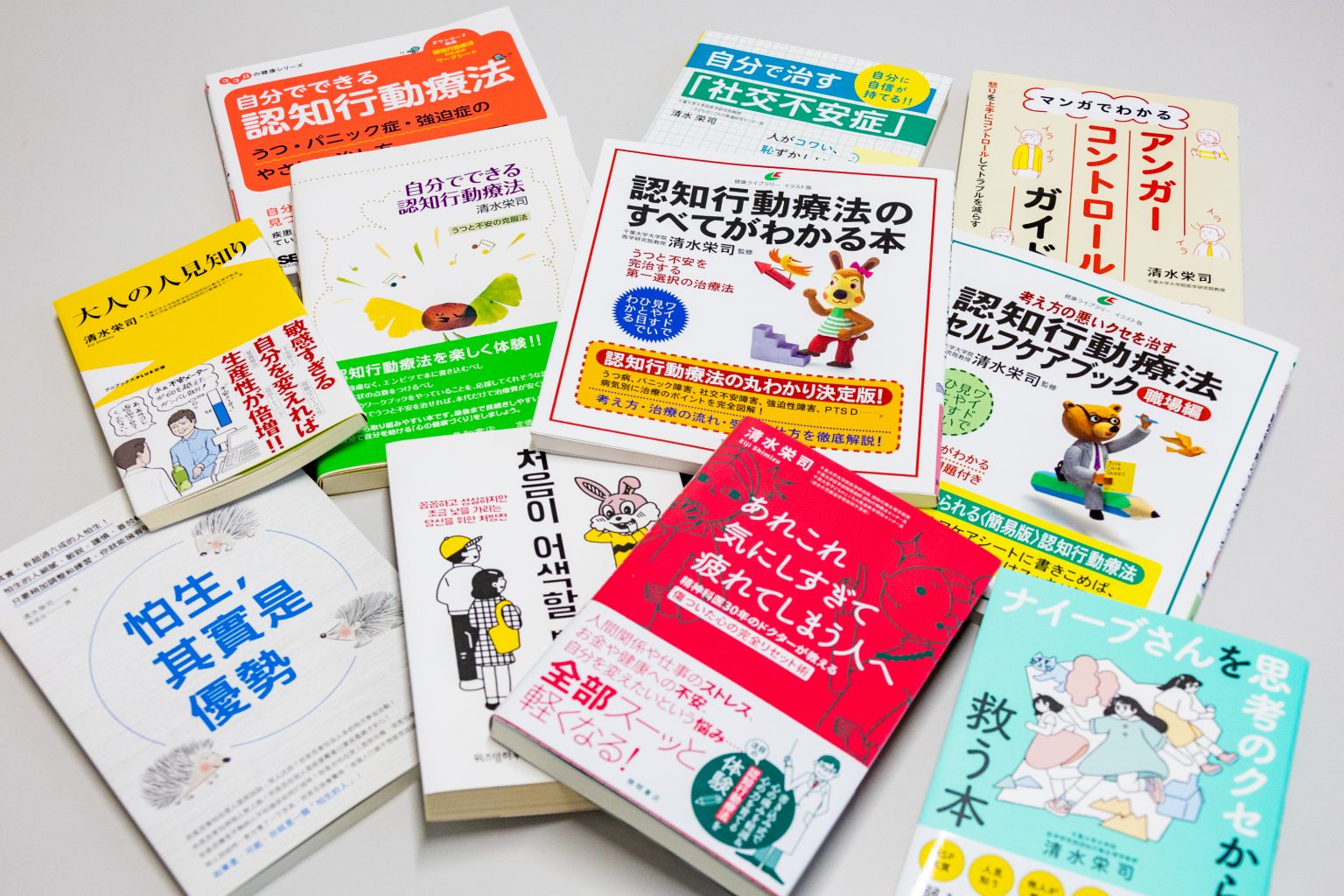
【Also recommended】
Series
Paving the Way for the Future of Children
Efforts to support the healthy growth of children are crucial. Our researchers confront the social issues surrounding modern children to protect “Children’s Present and Future.”
-

#1
2023.02.15
Children-centered support and school operations: On the occasion of the founding of the Children and Families Agency
-

#2
2023.03.10
What is “Digital Citizenship” Education that lives in a future society?
-
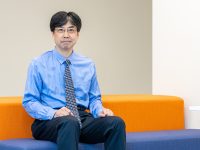
#3
2023.04.19
“Journey of the Brave,” a new cognitive behavioral therapy program: a solution for children’s anxiety
-

#4
2023.05.26
Examining Social Injustice of Modern Society through “Child Poverty”: Creating a Society Where Every Parent is Respected, and Every Child Thrives
-

#5
2023.06.16
Fostering Inclusive Education for the Gifted and All: Unlocking Northern European Insights for Special Needs Learners
Recommend
-

Exploring the uncharted waters in paleontology: Studying “Fossil Poop” as an academic survival strategy
2023.01.25
-
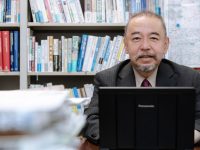
The Global Goal of Carbon Neutrality by 2050 (Part 2): A decarbonized society from a local perspective
2023.07.14
-

When Pain Speaks: Tackling Endometriosis Through Medicine, Research, and Outreach
2025.06.24


